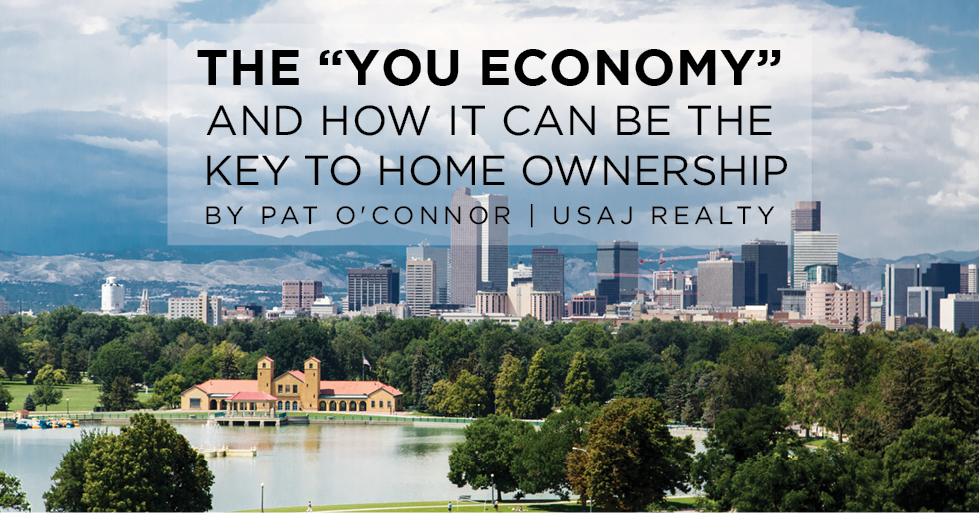“You Economy” Can Be Key to Home Ownership
There is an economy that has been bubbling below the surface since the early 1990s. It’s fortitude and reach haven’t been recognized until the last several years, partly because it hasn’t had a formal name.
It’s been called on-demand services, or the sharing, gig or freelance economies. The best description has been offered by Success Magazine, coining it the “You Economy” in June of 2016. It’s an economy driven by you, the consumer and producer, as resources and technology are shared, services and products are provided, and training and support are made available online to expand your horizons. The explosion of the internet, the power of online purchasing and GPS location services have all been key in driving this “new” economy.
When it comes to real estate and people trying to buy a home, the You Economy might be just the answer to provide the additional income necessary to qualify for a home. By showing a steady stream of money or even posting commissions gained over time, your chances of home ownership improve dramatically. And many times, all you need is a computer or smartphone, and an internet connection.
People Make more Money
The You Economy is allowing people to grow their income through part-time or contract work, by showcasing personal creations and products or offering services outside of their “real” job. And in many cases, these activities eventually become their permanent job. Whether you’re selling handmade products on Etsy, driving for Uber, renting your home on Airbnb or walking your neighbor’s dog through Rover, you have a stake in the You Economy.
Success Magazine and Harris Polling conducted an online survey in May of 2016 and interviewed 2,000 adults. Thirty-three percent of those people surveyed earned income in the You Economy over the last 12 months, supplementing their income and providing new financial opportunities in the process.
By reapportioning their time to pursue activities they enjoy or see as beneficial to their financial success, individuals are able to achieve the dream of home ownership. The You Economy can become an important source of income that helps renters become homeowners. Whether by accelerating the amount of money individuals are putting away each month for a down payment or by showing a constant revenue stream, the You Economy can be crucial to your landing a place of your own.
“This really can create financial freedom,” said Kara Bernal, mortgage loan originator with Denver Lending, of the You Economy. “Prior to 2008 (and the mortgage crisis), it was much easier to use side jobs to qualify for a home loan. Now, people must show their history of income from the past two years as well as ongoing. However, there are also many down payment options now (that didn’t exist back then) that don’t require the traditional 20 percent.”
Work with a Lender
It’s important to note that not all income is treated equally. For example, an Uber driver pulling in $500 per week will be handled differently than a sales representative earning commissions on the side.
“If you have variable or commission income in the You Economy, we want to see two years of documented income,” noted Bernal.
“That being said, there are new (loan) products available that allow bank statements to be verified (besides tax returns). If we see that there is income and it is increasing, that’s an important consideration. Additionally, we can get people in a house for as little at $1,000 instead of requiring they put all their savings into a down payment. We don’t encourage everyone to do this but there are cases where it makes sense.”
Conclusion
So if you’re considering dipping your toes into the You Economy with the hopes of creating the wealth necessary to buy a house, remember to start planning now. Whether it’s putting the money aside to gain interest for a year or two or documenting the income on your bank statement, have a strategy to make the money work for you.
“We like to have clients do a cash flow tracker to help them create a plan on how to save money and build long-term wealth,” said Bernal. “We help clients strategize to create financial freedom. Sometimes, if they still have a car payment, we’ll encourage them to pay off the car first before looking at buying a house. The best thing to do is start the process and talk to a lender. Everyone is unique and different, and there are many options out there.”




